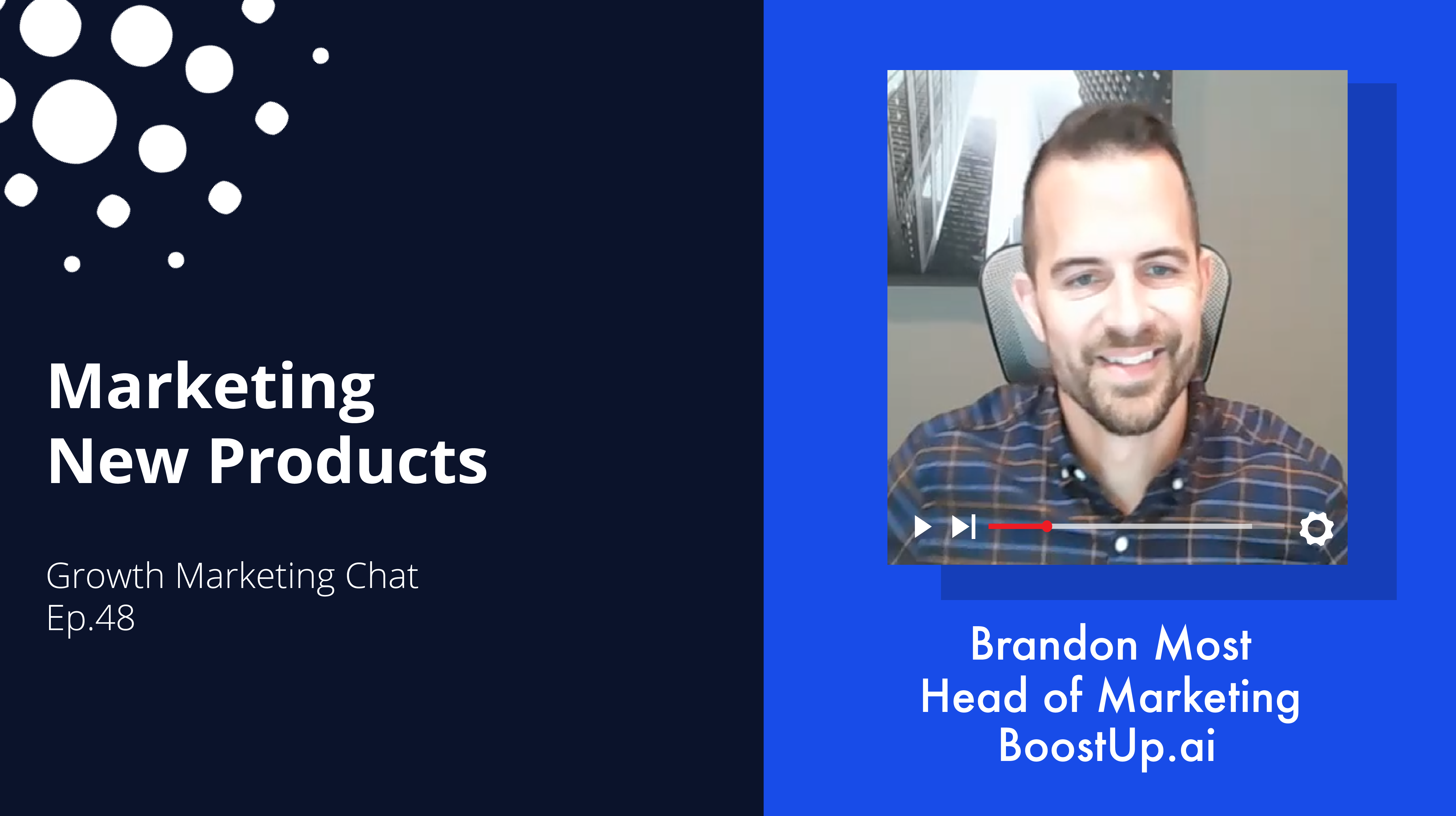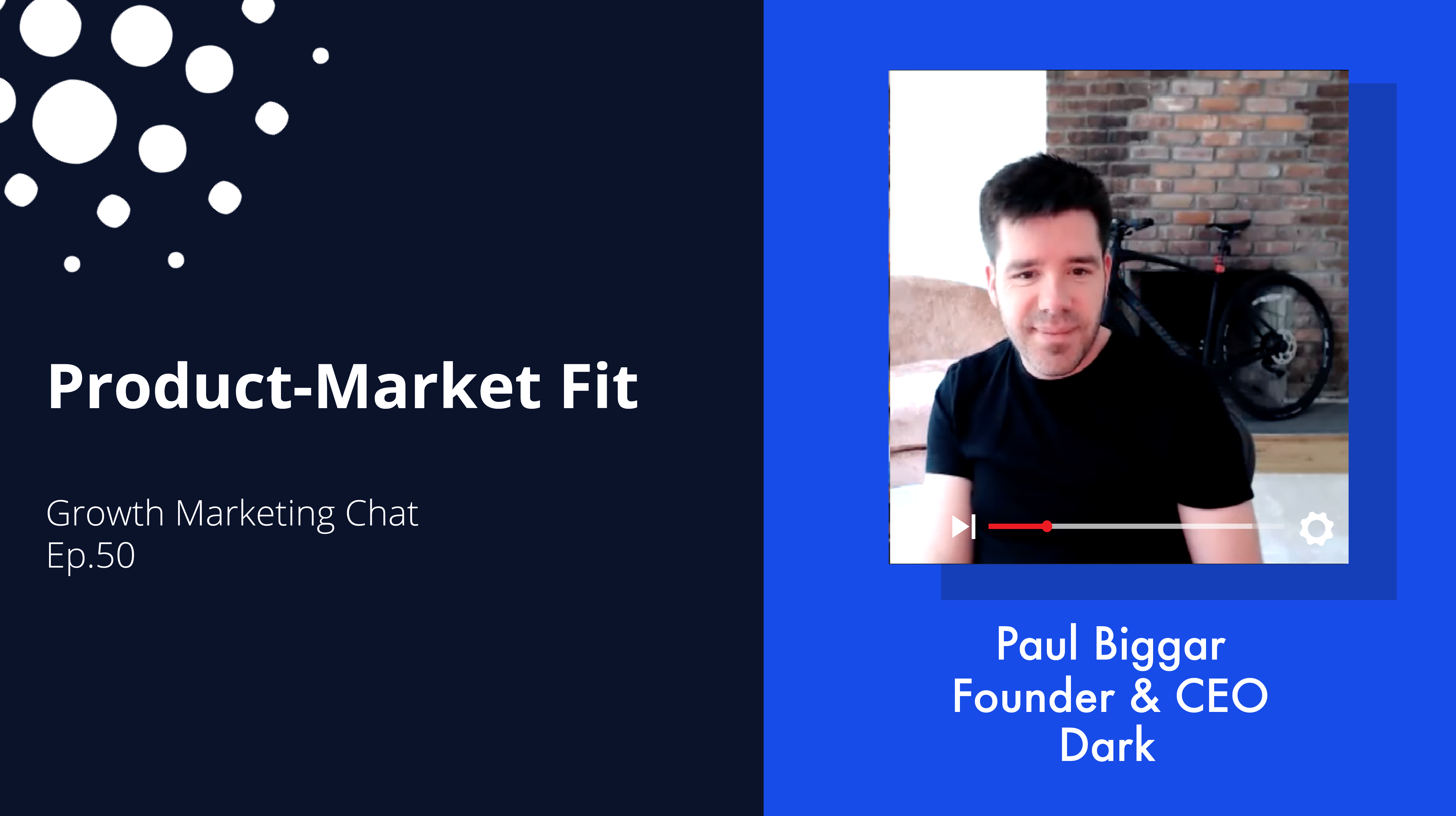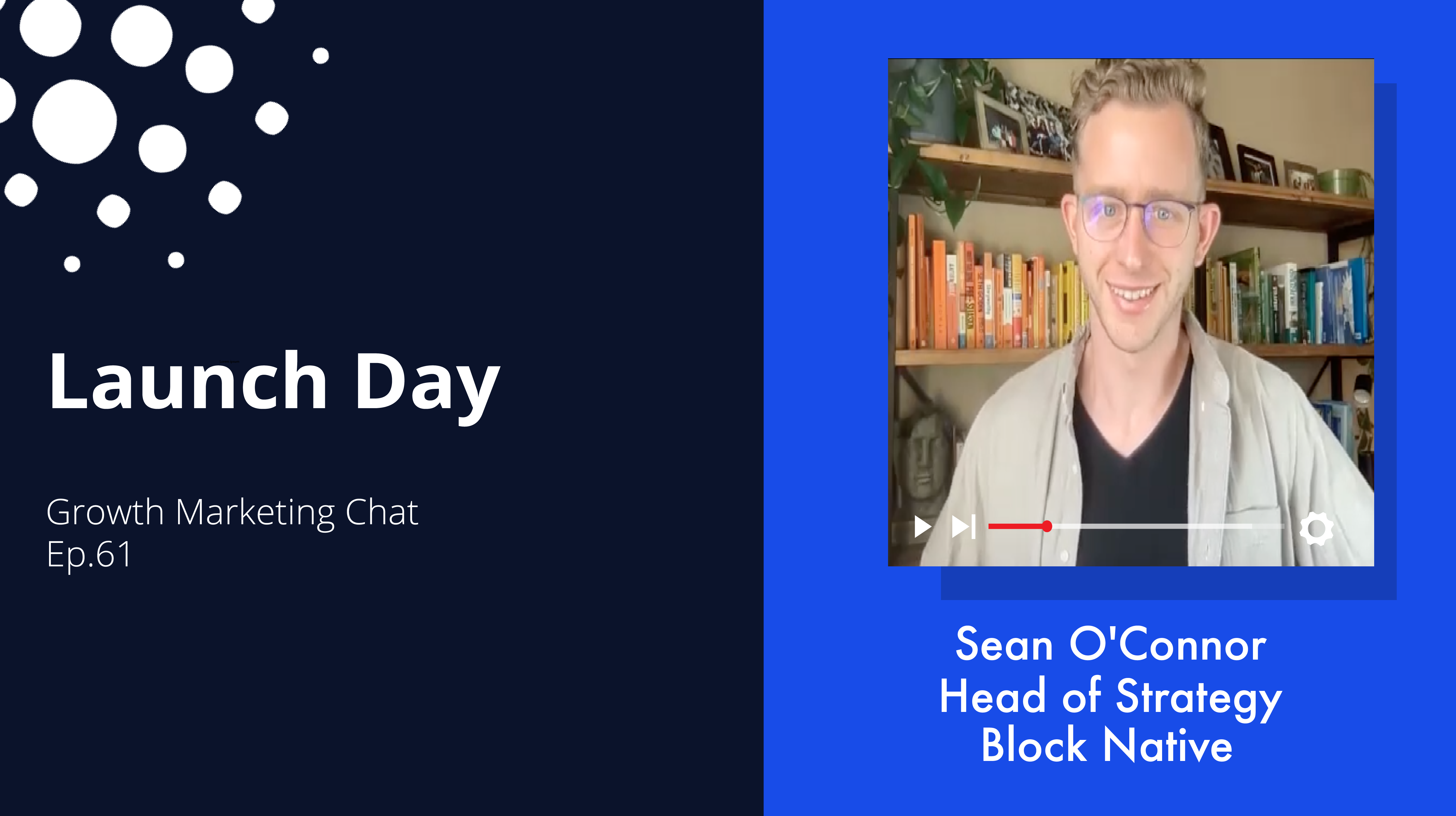Organizations often overlook the power of product marketing and how to utilize it to its full potential. When implemented properly, product marketing enables a brand to effectively demonstrate a product’s value and distribute content that illustrates why customers need it, playing an important part in supporting growth marketing.
Product Marketing is at the crux of Product, Marketing, Sales and Customer Success. It enables Sales and Marketing to align on the product’s value propositions and to both produce better leads and close more opportunities through accurate targeting, positioning and messaging.
Make an Impact with Powerful Product Marketing
VP of Product Marketing, Brendon O’Donovan from TeleSign, sat down with us to share his expert opinion on the most effective ways organizations can utilize their product marketing teams to generate results. In this episode of our Marketing Expert Chat series, we discuss strategy, execution, and the KPIs that help stakeholders grasp product marketing’s overall impact.
Tune in to the video now!
Video Transcript:
CAROLINE: Hi, today, I’m here with Brendon O’Donovan. Brendon is a product marketing expert and he now serves as the VP of Product Marketing at TeleSign. Brendon, thank you so much for being with me today.
BRENDON: Absolutely, great to be with you.
CAROLINE: So today we’re gonna talk about product marketing, and I wanted to ask you in your view, why do you think product marketing is so important, but more importantly, how should marketers think about investing in product marketing? When is the right time? How do you get buy-in from stakeholders? These kinds of things.
BRENDON: Sure, yeah, I think that product marketing kinda suffers sometimes from a lack of identity. There’s this bucket of things that doesn’t fall into a demand or sales or creative, and it kinda comes in and people have this idea that has to live somewhere, so it ends up in product marketing. And that’s not always the best way to think of it.
If you get product marketing right, product marketing should help you define your core competency, what you do, what you do well, who your buyer is, what matters to them, why you’re a better solution than your competitors or what they’re doing today. And if you’re doing it really well, the product marketing can bring a market perspective to your development, your engineers, your product, and really help drive the way that your company can evolve.
So, it’s equal parts, strategy and execution. And it’s one of those things when you have a well-defined and a good mission for it, it can be really impactful from any stage of your organization. You’ll kind of see this function though, let’s say in early-stage companies end up being kind of like a founder, if you will, because that’s the strategy piece, who is your customer, what are you building? What’s your mission? Who are you? Like a lot of that stuff comes from the founder in like early-stage companies but the bigger you get and the more diverse your customer base gets, the more you want to expand. That’s where product marketing really starts to take shape.
So, as you start getting multiple product managers and you start to get a more complex customer base or your product expands beyond what it’s minimal viable pieces and you’re starting to see traction, well, if you start to see traction, then you’ll probably see competitors enter or you’ve got more pressures or your use cases change. And those are the areas where product marketing really helps you to find what you do, how you do it and how you sell it optimally.
And that’s kind of the magic of that function is bringing all those stakeholders together in one place with clarity. So, you know what you’re doing, what you’re going after and how to go after it.
CAROLINE: Great, great, and so how would you define KPIs that help align to all of these goals so that people can understand really the impact of product marketing within the organization?
BRENDON: Yeah, I think it’s one of those ways, it depends on how you organize your product marketing team. There’s launch metrics. If your product marketing team is really about bringing new products to market, how effective was the launch? Did you meet your sales goals? What does your pipeline build look like? Did the message resonate? And you measure that by conversions and SQLs or MQLs.
How do you get those customers to the table? There’s efficiency metrics like, days to close, if you’re doing it right, your days to close or your sales cycle should go down. If you’re selling the right product and you’re building the right product and you’re messaging the right product, and it aligns, the customer buys the right value proposition and you deliver on the value proposition, you should have low churn.
So, product marketing affects those metrics and should have some responsibility to deliver on those metrics. But at the end of the day, product marketing doesn’t own churn, product marketing doesn’t own closing sales. So, it’s one of those evolutions of metrics. If you go back, I don’t know, I think back 10 years ago in marketing, we had a lead goal. We had to bring in how many thousands of leads per month. And there was some formula on the other end of that that said if we brought in that kind of leads, that turn into this many dollars, and that’s great.
I think the more modern way of looking at marketing in general is contribution. You’re not on the hook for the lead, you’re on the hook for the dollars. And know marketing doesn’t own the dollars but marketing owns the responsibility for sourcing those dollars.
So, in the same way, when marketing gets the number that says, okay, you owe me 40% of my sales and that’s this many dollars. Product marketing has the same type of responsibility as demand on that front, which is sales efficiency. Are you closing, is the average sale price, right? What is your win loss ratio to your competitors? Are you improving that? Are the customers that you’re bringing in and telling the story, are they staying? Did you live up to that promise? And those are all things that product marketing can really impact.
CAROLINE: Great, all right. Well, I think that is a great summary of how to approach product marketing. So, thank you so much for sharing your insights with us.
BRENDON: Absolutely, any time.
CAROLINE: All right.






